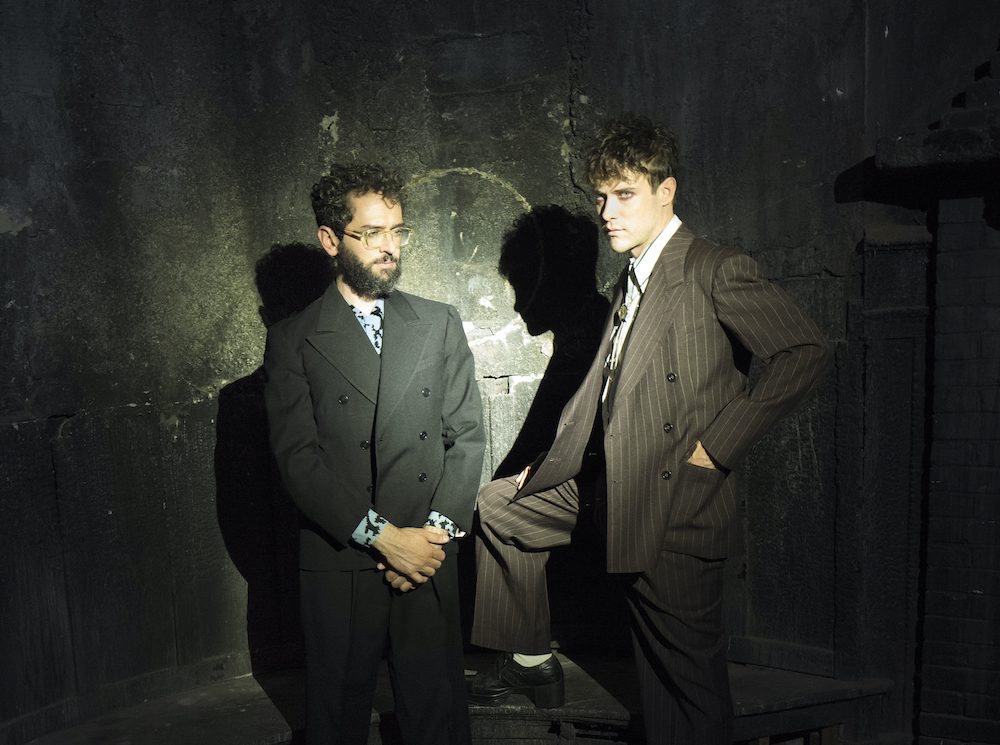
In retrospect, the fates of indie rock’s Class Of 2008 panned out much stranger than anticipated. At or around the final turn of the 2000s, three bands made the indie-to-major crossover in highly visible fashion: MGMT, Passion Pit, and Chairlift, all coincidentally signed to the same huge hub of Columbia. Following the wispy and gently weird electronic pop of their buzzy Kanine debut Does You Inspire You, Chairlift built an increasing amount of acclaim with their two Columbia releases, Something and Moth in 2012 and 2016 respectively — then, they broke up, with Patrick Wimberly becoming something of an in-demand producer across the pop and indie spectrum while frontwoman Caroline Polachek would metamorphosize into one of the must cultishly beloved alternative pop stars of our current decade so far.
After several very successful albums and a highly visible struggle with mental health issues, Passion Pit’s Michael Angelakos — whose project’s first three releases, from 2008’s breakout Chunk Of Change EP to the adventurous and emotionally devastating Gossamer from 2013, inspired countless imitators while remaining singular in its purely emotive streaks amongst plenty of too-cool peers — largely retreated from the public spotlight, occasionally re-emerging for one-off live performances when he sees fit to. But if Chairlift and Passion Pit’s trajectories were a little strange and a little expected when it comes to indie-to-major success stories, the path that MGMT’s Andrew VanWyngarden and Ben Goldwasser took is as rarely-trodden (especially when compared to the extreme predictability of current-day indie rock) as it gets.
Formed in extreme earnest while the pair were attending Wesleyan in the mid-2000s, MGMT seemingly came out of nowhere with their Columbia debut Oracular Spectacular in 2008 after the record received a low-key digital release in the fall of 2007. It was a wooly and wild record that also contained three of the most high-powered and ubiquitous singles in the realm of 2000s indie rock, and the swaying synths and rubbery beats of “Kids,” “Electric Feel,” and “Time To Pretend” still reverberate in the strangest of places today — from Travis Kelce’s old tweets to Saltburn’s nude-sunbathing montage. At the time of release, these songs were inescapable for a certain variant of millennial, suggesting the potential for MGMT to become the biggest mainstream indie rock crossover since the Strokes hit the scene seven years previous.
Something else happened instead: MGMT got weirder. And weirder. And weirder. 2010’s heavily anticipated Congratulations ditched all pop pretense in favor of spiky, melodically slippery prog-pop and sidelong multi-suite discursions, while 2013’s self-titled effort was suffused with spacey paranoia, even its most accessible tunes miles away from the type of music that made MGMT famous. “At this point in our careers, we can’t write a pop song,” VanWyngarden told me in a Pitchfork cover story chronicling MGMT’s own fraught genesis, and even as he and Goldwasser proved that sentiment wrong with the starry-eyed and apocalyptic Little Dark Age in 2018, it’s since become crystal clear that MGMT were simply not made for the indie-pop times that they incidentally and very accidentally brought forth.
Of course, the fact that MGMT have (not unlike cosmic kin Animal Collective) marched to the beat of their own drum regardless of their own success is not a bad thing. Indeed, it’s actually made for one of the most fascinating career trajectories in the last 20 years of indie rock, as Goldwasser and VanWyngarden have journeyed far out in terms of their sonic style —encompassing dusky and freaked-out folk-rock, prog’s knotty and self-mythologizing sense of indulgence, the brittle glow of early electronic music, and the weirdo charms of lo-fi garage pop— with lyrical sentiments that are hilarious, horrifying, and sometimes both all at once. They’ve worked with left-of-center musical thinkers like former Spacemen 3 member Pete “Sonic Boom” Kember, ex-Royal Trux mouthpiece Jennifer Herrema, New Zealand freak-pop aesthete Connan Mockasin, and the aforementioned superproducer-in-the-making Wimberly; Panda Bear, Bradford Cox, and Daft Punk’s Thomas Bangalter all count themselves as admirers of MGMT’s fascinating catalog so far.
At this point, MGMT have become something of a “heads only” concern — your favorite musician’s favorite band, maybe — which is a funny thing to say for an act still frequently namechecked as the musical representation of late-2000s hipsterdom, and aughts nostalgia as a whole. But with every successive record, VanWyngarden and Goldwasser have increasingly cemented a reputation as two people from whom to expect the unexpected; if you’re into hearing stuff that’s a little challenging and unlike what most of their supposed peers are doing, they are making it in no short supply.
Their latest record, Loss Of Life (out this Friday), is quite possibly MGMT’s biggest left turn in a career full of them. Across its ten songs, the duo embraces a classic-rock aesthetic that has only been hinted at here and there throughout their discography — but with an alien, uneasy touch that only these two could possibly conjure, with a doomy and pessimistic lyrical outlook offsetting the wide-eyed pastoral psychedelia that runs through it. Newcomers and longtime fans might be surprised by this latest twist, so we’ve put together a very unscientific ranking of the best MGMT songs so far that doubles as an instructive journey through this band’s fantastically fascinating catalog.



